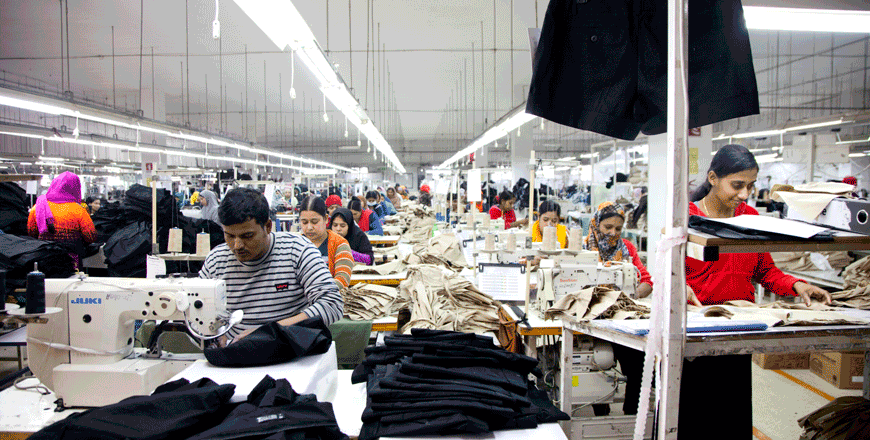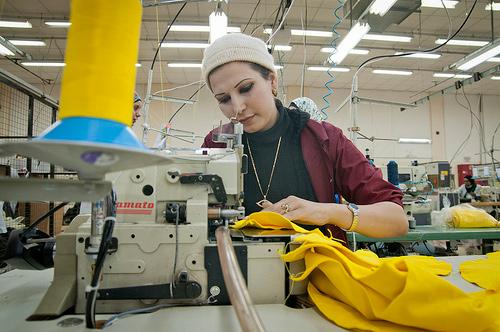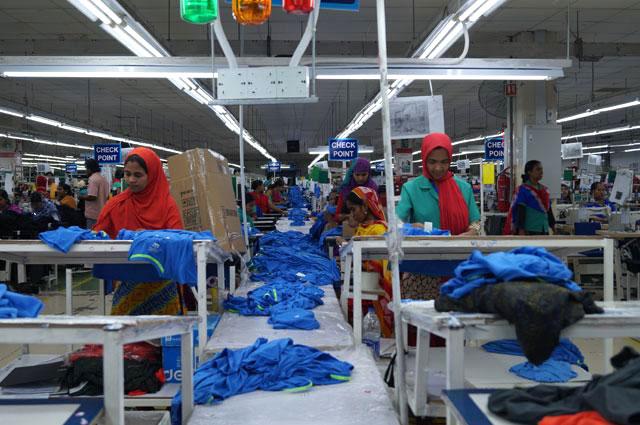You are here
Garment sector sees improvements in compliance, despite gaps — Better Work Jordan report
By JT - May 30,2023 - Last updated at May 30,2023

Jordan’s garment industry had a strong start in 2022 and has generally shown resilience since the downturn caused by the COVID-19 pandemic, according to Better Work Jordan (Photo courtesy of Better Work Jordan website)
AMMAN — Despite progress in compliance and the joint efforts of the government, employers and labour unions for a collaborative garment industry, there remain shortcomings in the sector’s adherence to national laws and international labour standards, especially in occupational safety and health (OSH), observed Better Work Jordan’s (BWJ) 2023 annual report.
The report covered 86 factories participating in BWJ, which is a partnership between the International Labour Organisation and the International Finance Cooperation which aims to improve working conditions, enhance respect for labour rights and boost competitiveness in the garment industry, said a statement posted on the BWJ website.
The report cited multiple sources, including assessment findings from unannounced compliance visits to factories conducted jointly with the Ministry of Labour.
The Project Advisory Committee (PAC) discussed the report findings in a meeting on March 20, 2023. The PAC meeting was attended by representatives of the Labour Ministry, the Jordanian Garment, Accessories and Textiles Exporters’ Association (JGATE), the General Trade Union of Workers in Textile, Garment and Clothing Industries (JTGCU), the Jordan Chamber of Industry, the US embassy in Amman, and garment factories.
“This 50th PAC meeting is a clear and sound indicator of the success of Better Work Jordan,” said Najah Abu Tafish, head of the Labour Ministry’s Directorate of OSH.
“We envision further improvements within the sector, especially in OSH. We just need to activate the synergy component with Better Work Jordan’s social partners for tangible results.”
Labour inspectors are now a part of all factory compliance assessments, and in 38 per cent of the cases, they conduct assessments independently, the BWJ statement said.
The JTGCU hired seven trade union organisers to increase its presence in all industrial zones and among all workers.
Fathallah Emrani, JTGCU president, said the union is keen to ensure compliance with national laws and international labour standards.
“We also intend to build on the successes achieved over the past 15 years, it is a matter of time until pending issues are fully resolved,” he added.
JGATE Chairman Ali Imran said: “Over the past 15 years, we saw positive change, driven by Better Work Jordan.”
Better Work Jordan has noted improvements in the last few years in recruitment practices, including reducing the instances of pregnancy tests for migrant workers and of migrants paying recruitment fees.
After stakeholders addressed these issues head-on in 2019, non-compliance rates increased as existing violations were caught, but now violations have substantially decreased, the BWJ statement said.
In 2022, 14 per cent of factories were non-compliant for the issue of recruitment fees, and 9 per cent for the issue of pregnancy tests, compared with 30 per cent and 55 per cent, respectively, in 2020.
Jordan’s garment industry had a strong start in 2022 and has generally shown resilience since the downturn caused by the COVID-19 pandemic. In total, $2.2 billion worth of garments were exported in 2022, the highest export value for the sector to date.
Better Work Jordan is mandatory for garment factories that export to the US under the US-Jordan Free Trade Agreement. As of December 2022, 95 factories employing 78,617 workers were enrolled in the programme.
Migrants constitute three-quarters of the workforce, with the remainder Jordanian nationals.
The majority of workers are women — nearly 75 per cent of the production workforce.
Related Articles
AMMAN — Poor ventilation, plumbing, sanitary services, failure to renew work permits and delayed payments are some of the violations that Ba
AMMAN — The garment sector in Jordan “has accomplished remarkable achievements and high compliance rates in line with international standard
AMMAN — Jordan’s garment industry has been spared the worst effects of the pandemic, proving to be “relatively” resilient in its adaptabilit













